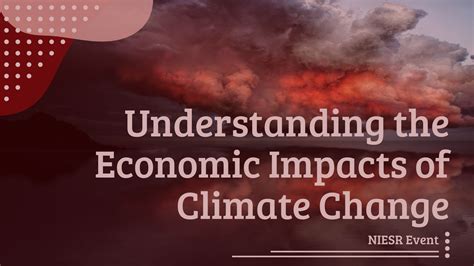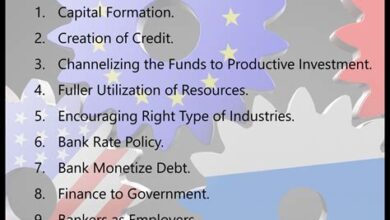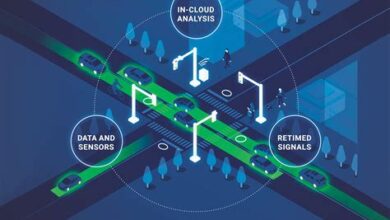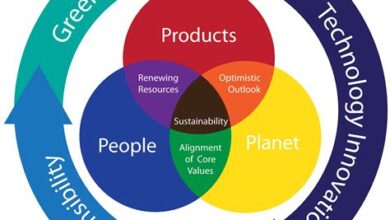Expert Analysis: The Economic Implications of Climate Change

Learn about the impact of climate change on the global economy and the economic opportunities in renewable energy. Find long-term strategies for climate adaptation.Climate change is a pressing issue that has far-reaching implications for the global economy. Understanding the economic impact of climate change is crucial for both policymakers and businesses as they navigate the challenges and opportunities that arise from this environmental crisis. In this blog post, we will delve into the complex world of climate change economics, shedding light on the various aspects that shape and define its economic implications. From the impact of climate change on global GDP to the costs of mitigating its effects, we will explore the economic challenges and opportunities that come with addressing climate change. Additionally, we will examine the economic opportunities presented by renewable energy and discuss long-term economic strategies for climate adaptation. By gaining a deeper insight into the economic dimensions of climate change, we can better comprehend the urgency of taking action and the potential pathways to a sustainable and prosperous future.
Introduction to Climate Change Economics
Climate change economics is an increasingly important field of study as the world grapples with the impacts of a changing climate. The economic implications of climate change are wide-ranging, affecting everything from global GDP to individual household budgets. As the impacts of climate change become more severe, understanding the financial implications becomes increasingly crucial.
One of the key aspects of climate change economics is the impact of climate change on global GDP. As extreme weather events become more frequent and severe, they can disrupt supply chains, decrease agricultural productivity, and lead to costly damage to infrastructure. These impacts can have far-reaching effects on the global economy, making it essential to understand the potential economic consequences of climate change.
Additionally, the costs of mitigating the effects of climate change are a significant area of concern in climate change economics. Implementing measures to reduce carbon emissions and adapt to a changing climate requires significant financial investment. Understanding the costs associated with these efforts is crucial for policymakers and businesses as they work to develop effective strategies for addressing climate change.
Impact of Climate Change on Global GDP
Climate change has become a major concern for economists and policymakers around the world due to its potential impact on the global economy. The Impact of Climate Change on Global GDP is a topic that has gained significant attention in recent years as the threats of extreme weather events, rising sea levels, and environmental degradation become more apparent. It is crucial to understand the potential economic implications of climate change in order to develop effective strategies for mitigating its effects.
Research has shown that climate change could have a profound impact on the global economy, leading to a decline in the Global Gross Domestic Product (GDP). The increased frequency and severity of natural disasters, such as hurricanes, floods, and droughts, can disrupt supply chains, destroy infrastructure, and lead to significant financial losses. In addition, the long-term effects of climate change, such as heat stress on labor productivity and health costs, can further reduce economic growth.
Furthermore, the Impact of Climate Change on Global GDP extends beyond physical damages and loss of productivity. It also poses significant risks to the financial system and global markets. As climate-related risks become more pronounced, investors and financial institutions are increasingly exposed to potential losses, leading to greater market volatility and economic uncertainty. This can further impede investment and economic growth, ultimately affecting the overall global GDP.
Costs of Mitigating Climate Change Effects
As climate change continues to have a profound impact on the environment, there is an increasing urgency to mitigate its effects. However, mitigating climate change comes at a cost, and understanding the financial implications is crucial for policymakers and businesses alike.
Investing in renewable energy infrastructure and technology is one way to mitigate the effects of climate change. The initial costs of building and implementing renewable energy sources such as solar and wind power can be significant, but the long-term benefits of reducing carbon emissions and reliance on finite resources can outweigh these expenses.
Furthermore, implementing green technology and sustainable practices across different industries may also require significant investment. However, the long-term economic benefits of reducing environmental damage and preserving natural resources can provide a compelling case for these up-front costs.
Economic Opportunities in Renewable Energy
Renewable energy has been gaining momentum as a viable and sustainable alternative to traditional sources of energy. The increasing focus on reducing carbon emissions and combating climate change has paved the way for economic opportunities in the renewable energy sector. As the demand for clean energy continues to rise, so does the need for investments in solar, wind, hydroelectric, and geothermal energy sources. These investments not only have the potential to create jobs and boost economic growth, but also contribute to a more sustainable future for generations to come.
Furthermore, the shift towards renewable energy presents opportunities for innovation and technological advancements. With advancements in energy storage, grid integration, and smart technologies, the renewable energy sector is ripe for research and development. This opens up new avenues for investment in clean energy infrastructure and the potential for economic growth and job creation in related industries.
In addition to the environmental benefits, the economic opportunities in renewable energy extend to the potential for energy independence and energy security. By diversifying the sources of energy, countries can reduce their reliance on imported fossil fuels and mitigate the geopolitical risks associated with traditional energy sources. This not only has economic implications but also contributes to national security and resilience in the face of global energy challenges.
Long-term Economic Strategies for Climate Adaptation
As the threats of climate change continue to manifest in our world, it is becoming increasingly evident that long-term economic strategies are needed to adapt to these changes. The effects of climate change have far-reaching consequences that can disrupt economic activities, endanger livelihoods, and cause widespread damage to infrastructure. It is imperative for policymakers and businesses to develop robust economic strategies that can mitigate the impact of climate change and ensure long-term sustainability.
One of the key economic strategies for climate adaptation is investment in resilient infrastructure. This involves the construction of infrastructure that can withstand extreme weather events, rising sea levels, and other climate-related hazards. By building resilient infrastructure, communities and businesses can minimize the economic losses caused by climate change, protect valuable assets, and maintain the functionality of essential services.
Another important economic strategy for climate adaptation is the development of climate-resilient agricultural practices. Agriculture is highly vulnerable to the effects of climate change, such as droughts, floods, and shifting temperature patterns. By implementing sustainable farming techniques, investing in drought-resistant crop varieties, and promoting water conservation, economies can safeguard their food supply and support the livelihoods of rural communities.





